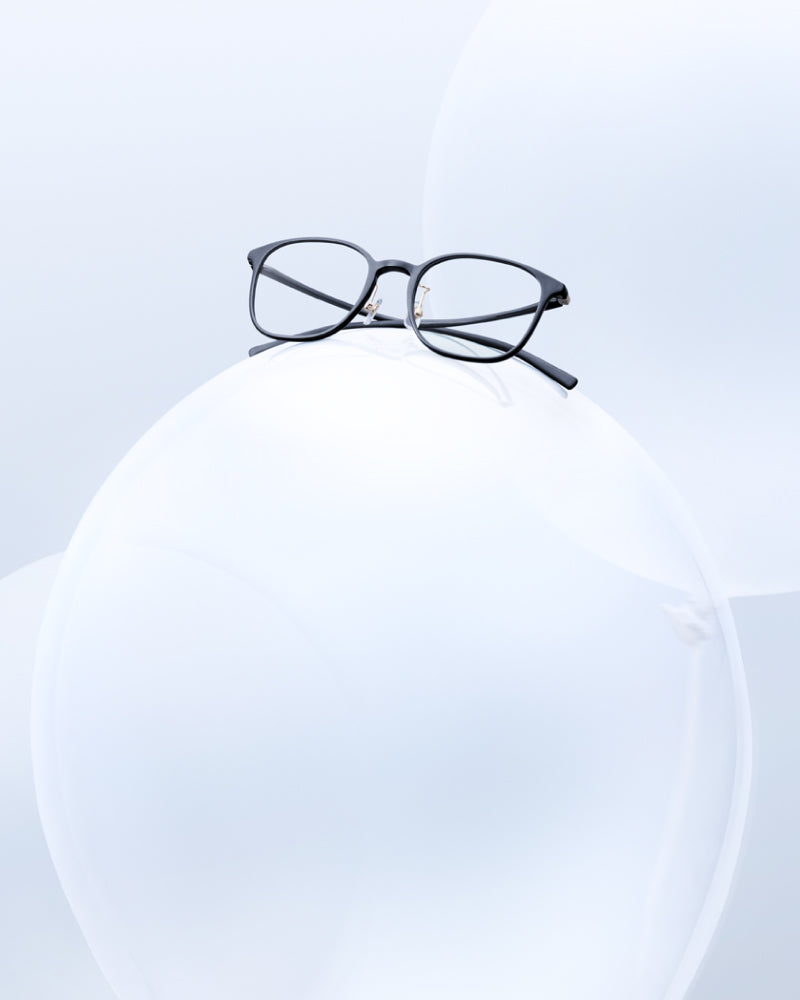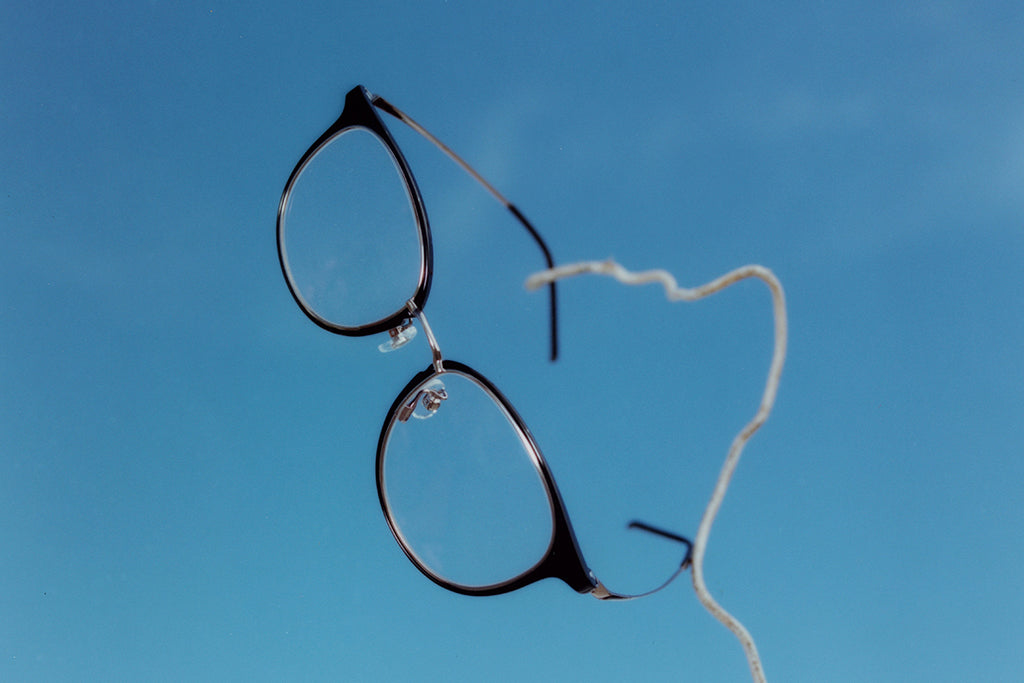More than 12 million people in the United States over the age of 40 have impaired vision, and around 6.8% of those under the age of 18 have a vision issue. That's a lot of people wearing corrected lenses, so if you're one of them, you're certainly not alone. One of the great things about vision correction today is that you have so many options to choose from, so you can definitely find one that suits your comfort level, lifestyle and overall eye care needs.
Choosing your next corrective lenses can be a daunting proposition. You might need to wear them regularly, so you want to choose glasses that fit your preferences, personality and functional needs. But with so many options, how do you know which is right for you? Get some tips for making the decision below, along with seven reasons lightweight glasses might be the right option for you.
WHAT ARE YOUR VISION-CORRECTION CHOICES?
The main choice when it comes to vision correction is glasses or contacts. But even within those overarching categories, you have tons of choices.
The Food and Drug Administration provides a list of contact lens types, including:
- Soft lenses
- Rigid gas-permeable lenses
- Extended-wear lenses
- Disposable lenses
But glasses come in even more types. Lenses come in a variety of materials and types, including:
- Polycarbonate, which are impact-resistant with built-in UV protection
- Trivex, which is also impact-resistant but is lightweight and thin
- High-index plastic, which can provide super light, thin lenses even when you need a strong prescription
- Photochromic lenses, which become tinted when exposed to sunlight
- Polarized lenses, which reduce glare from surfaces that reflect light, including water
- Bifocals, which have lenses that are split in two prescription types for near and far vision
- Trifocals, which have lenses split in three prescription types for near, mid and far vision
Then you have coatings to choose from, such as scratch-resistant coatings and UV protection. You can also choose a coating that creates tinted lenses to help reduce glare and the impact of sun on your eyes.
WHAT ARE LIGHTWEIGHT GLASSES?
Lightweight glasses refer to those that weigh less than the average pair. To get lightweight glasses, you typically need to select two components.
Lenses are first. Typically, the more help your eyes need in order to be able to see clearly, the thicker your lenses will need to be. That makes glasses heavier. Choosing high index lenses made out of materials such as polycarbonate can ensure you get a thinner product, which reduces the weight on your face. At JINS, high-index lenses are included in your purchase at focusing powers up to 1.74.
Second, you want to choose lightweight frames. Slim metal frames are one such option, as are ones made of special materials (such as Airframe glasses available at JINS). Frames made from titanium make for an excellent lightweight choice since it's both lightweight and durable — it's extremely strong and doesn't corrode over time. Titanium frames can also be made into “memory metal,” allowing your frames to bend and return to their original shape.
Consider also choosing a pair of frames that don't wrap fully around the lenses if you're looking to reduce weight while sticking with a relatively denser material.
WHY LIGHTWEIGHT GLASSES ARE A FANTASTIC CHOICE FOR MANY PEOPLE
You have plenty of options if you do decide to opt for lightweight glasses. Here are some reasons to do so.
1. Lightweight Glasses Support Comfort

When your glasses don't weigh as much, you don't feel them as much. Simply put, when you have a great pair of lightweight spectacles that fits perfectly, you're more comfortable in them.
When your glasses are comfortable, you're more likely to wear them as recommended. Whether that's putting them on to drive, using them to read books or when you're working at a computer or wearing them all day, you'll barely notice that you have them on if they're light as air — or as close to it as glasses can actually get.
2. Light Frames Can Reduce Pressure Points on Your Face
No matter how cleverly designed they are, glasses are susceptible to gravity, just like anything else you might wear. There is always going to be some amount of force pulling down on them, and the heavier the glasses, the more that force is.
It may not be a huge amount of force, but even a little added weight can put a bit more pressure on various areas of your face, particularly the pressure points on your nose and bridge. When you're wearing something as often as you wear your glasses — for some people it can be 12 to 16 hours every day — that little bit of pressure or lack of it can make a big difference in long-term comfort. Plus, reduced pressure on your nose bridge makes it less likely that your frames leave an imprint when you take them off.
3. Corrective Glasses Also Let You Customize Your Look

If you're trying to figure out whether you want a pair of lightweight eyeglasses or contacts, the opportunity for added style might help you make your choice. From shutter shades to gray lenses to gorgeous frame patterns, you can completely customize your look with the right pair of glasses. You can find a pair of everyday glasses that match your overall personality or stock up on a few so you can match favorite outfits or update your look to fit your mood, allowing you to explore your personal style and fashion.
4. Lightweight Frames May Stay in Place More
Remember that bit about gravity? Even when your glasses fit well and have been properly adjusted, the laws of physics dictate that they may still try to slide down your face. Lighter weight frames need less to keep them in place, which means you don't need snug pads pushing into the bridge of your nose or pressing into your head behind your ears. A little goes a long way when your glasses are light enough to almost float on your face.
If you're particularly concerned about fit, the new AirHingeless frames from JINS are a great choice if you're looking for lightweight frames without the need for frame adjustments. Hingeless templates provide a comfortable fit regardless of your face shape.
5. Lightweight Frames are More Durable and Last Longer
And speaking of gravity's impact on glasses, there's another plus to consider with lightweight frames: they tend to be more durable and last longer than their heavier counterparts. Consider the damage-resistant properties of the titanium and stainless steel frames discussed above — not only are they light and comfortable, they are less susceptible to damage and corrosion. Even if they do slip and fall, you can rest a little easier knowing that they're likely to come away unscathed.
Check out lightweight glasses options at JINS with Airframe — use the virtual try-on to find a lightweight pair that flatters your face and feels comfortable.


















